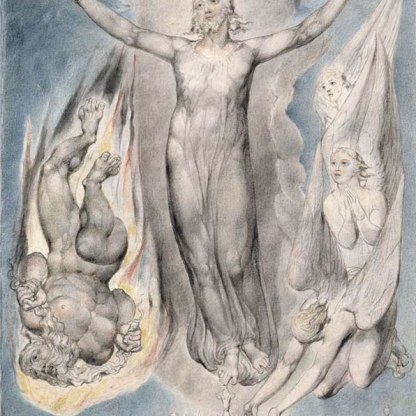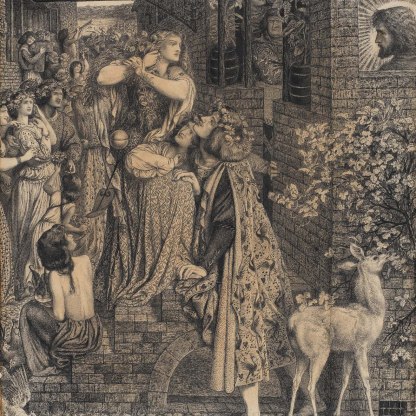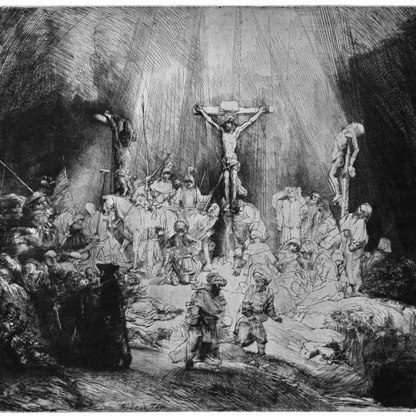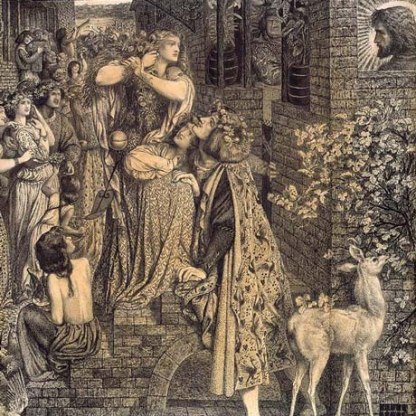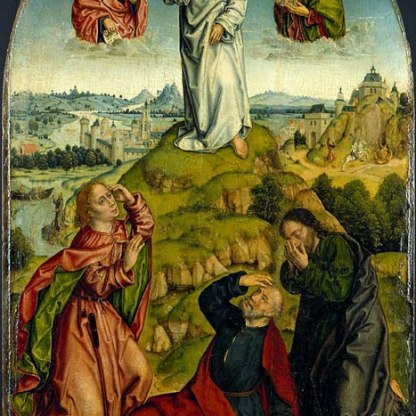The Prodigal Son

Of all Jesus’ parables, that of the Prodigal Son is the most commonly depicted in art. It is told at Luke, 15, 11–32.
And [Jesus] said, A certain man had two sons:
And the younger of them said to his father, father, give me the portion of goods that falleth to me. And he divided his living. And not many days after the younger son gathered all together, and took his journey into a far country, and there wasted his substance with riotous living.
And when he had spent all, there arose a mighty famine in that land; and he began to be in want.
And he went and joined himself to a citizen of that country; and he sent him into his fields to feed swine.
And he would fain have filled his belly with the husks that the swine did eat: and no man gave unto him.
And when he came to himself, he said, How many hired servants of my father’s have bread enough and to spare, and I perish with hunger!
I will arise and go to my father, and I will say unto him, Father, I have sinned against heaven, and before thee, And am no more worthy to be called thy son: make me as one of thy hired servants.
And he arose, and came to his father. But when he was yet a great way off, his father saw him, and had compassion, and ran, and fell on his neck and kissed him.
And the son said unto him, Father I have sinned against heaven, and in thy sight, and am no more worthy to be called thy son.
But the father said to his servants, Bring forth the best robe and put it on him; and put a ring in his hand, and shoes on his feet.
And bring hither the fatted calf, and kill it; and let us eat, and be merry:
For this my son was dead, and is alive again; he was lost, and is found. And they began to be merry.
Now his elder son was in the field: and as he came and drew nigh to the house, he heard music and dancing.
And he called one of the servants, and asked what these things meant.
And he said unto him, Thy brother is come; and thy father hath killed the fatted calf, because he hath received him safe and sound. And he was angry, and would not go in: therefore came his father out, and entreated him.
And he answering said to his father, Lo, these many years do in serve thee, neither transgressed I at any time thy commandment: and yet thou never gavest me a kid that I might make merry with my friends:
But as soon as this thy son was come, which hath devoured thy living with harlots, thou hast killed for him the fatted calf. And he said unto him, Son, thou art ever with me and all that I have is thine.
It was meet that we should make merry, and be glad: for this thy brother was dead, and is alive again; and was lost, and is found.
To the early Church Fathers, the Prodigal Son represented the heathen, his father God and his jealous brother, the Jewish people. Martin Luther and the Reformers equated the unenlightened older brother with the Roman Catholic Church.
The story was particularly popular in the Netherlands in the sixteenth century. It was the subject of several plays, the most popular of which was called Acolastus – Greek for ‘undisciplined’ – written by Guglielmus Gnapheus in 1529. The painter of the scenes on the Fitzwilliam's cabinet has included several characters not directly referred to in the biblical narrative, the prodigal’s mother and sister for instance, who are nevertheless important figures in these plays.
Other highlight objects you might like
Other pathways and stories you might like
Sign up to our emails
Be the first to hear about our news, exhibitions, events and more…
